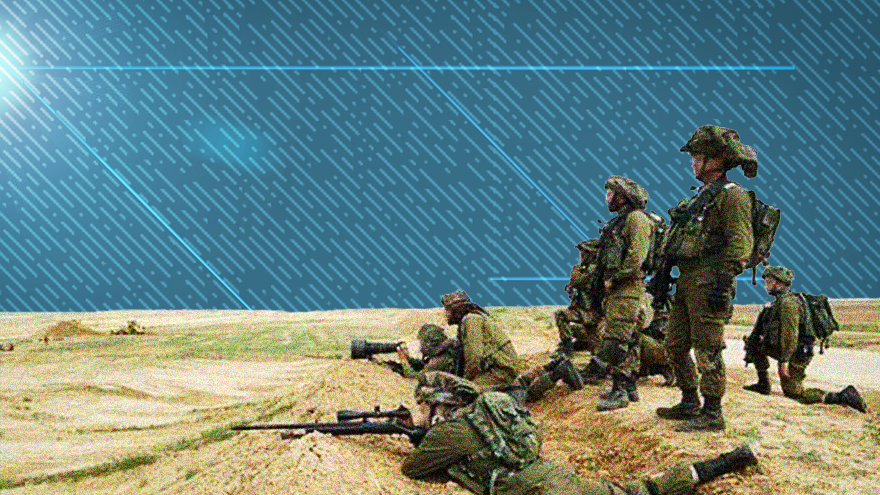Video footage from an Australian journalist in the West Bank shows snipers with the Israeli Defense Forces (IDF) shooting Palestinian protestors who were throwing stones.
The IDF soldiers were positioned from an elevated position at a military communications hub, looking down on the teenagers who were lobbing stones toward an armored military vehicle roughly 100 meters away — a distance of 330 feet, the length of an entire football field.
According to footage released by Sky News, Israeli snipers “sit back and watch” then occasionally fire live rounds into the teenagers who are too far away to pose any threat to either the snipers or the vehicle.
“There’s nothing unusual about these pictures in the West Bank,” Sky News Chief correspondent Stuart Ramsay says in the video.
“But four youngsters were shot for throwing stones, right in front of us. And we didn’t stay for a very long time,” he added.
Ramsay added in his account:
In the West Bank in the past week and a half alone, over 60 people have been shot dead by Israeli marksmen, and more than 1,300 have been wounded; it’s barely reported.
In a way, that’s what is the most shocking point to remember, and I think it’s indicative of how such casual acceptance of what is an incident that would lead news bulletins and front pages of newspapers all over the world, has become just part of life here.
Violence dominates everything.
When asked if snipers firing upon teenagers throwing rocks was a proportionate response, IDF Spokesperson Jonathan Conricus said, “Listen, the situation changed significantly on Oct. 7,” referencing the devastating attack on Israel by Hamas terrorists, which killed more than 1,000 Israeli citizens. Retaliatory strikes by Israel have so far resulted in the deaths of 3,478 Palestinians, with another 12,065 injured.
IDF soldiers shooting and killing Palestinian youth for throwing stones is not a new practice.
In 2015, Yisrael Shomer, an IDF colonel, opened fire at a Palestinian teenager, shooting him in the back and killing him as he ran away after throwing a rock at the officer’s car.
Video footage released after the incident showed that Shomer was not in danger at the time he fired at 17-year-old Mohammed Kasbeh, the third sibling in his family to be shot dead by IDF. At the time, Israeli military open-fire regulations permitted shooting the legs of a suspect, even while fleeing, in order to facilitate their arrest.
In 2021, the Israeli military loosened restrictions on shooting Palestinians, and “revised its open-fire policies for the West Bank, officially allowing troops to shoot at Palestinians who had thrown rocks or firebombs at cars, even if the assailants no longer present an immediate threat,” as The Times of Israel reported.
Under the new policy, if IDF soldiers see a Palestinian person throwing a rock at cars, they are permitted to use deadly force — even if, at the time of engagement, the suspect no longer has rocks in their hands, the Times explained.
Experts criticized the policy, which grants IDF personnel wider shoot-to-kill authority for unarmed individuals.
“A person who is fleeing does not present a threat, and unless you are in an active combat scenario and can deem them a combatant — which is certainly not the case today in [the West Bank] — the use of deadly force is truly irregular and a last resort measure,” Liron Libman, a former chief military prosecutor who headed the international law department of the Military Advocate General’s Corps, told the Times.
Eliav Lieblich, a law professor at Tel Aviv University, said the policy is a violation of international law.
“It certainly doesn’t sit with human rights law, because there is no way of demonstrating that the use of live fire like this matches the needs of self-defense or ‘absolutely necessary,’” Lieblich explained to the Times.

